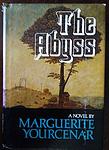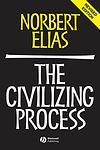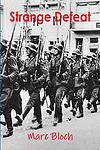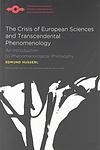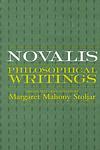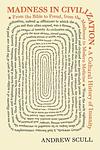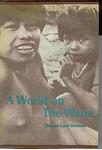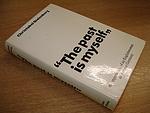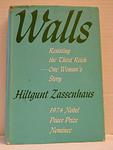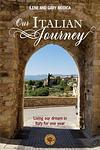The Greatest French, German "European History" Books of All Time
Click to learn how this list is calculated.
This list represents a comprehensive and trusted collection of the greatest books. Developed through a specialized algorithm, it brings together 305 'best of' book lists to form a definitive guide to the world's most acclaimed books. For those interested in how these books are chosen, additional details can be found on the rankings page.
Genres
European History is a category of books that focuses on the historical events, people, and cultures of Europe. It covers a wide range of topics, including the ancient civilizations of Greece and Rome, the Middle Ages, the Renaissance, the Enlightenment, and the modern era. This category of books explores the political, social, economic, and cultural developments that have shaped Europe over the centuries, from the rise and fall of empires to the impact of wars and revolutions. It provides readers with a deeper understanding of the rich and complex history of Europe and its influence on the world.
Countries
Date Range
Reading Statistics
Click the button below to see how many of these books you've read!
Download
If you're interested in downloading this list as a CSV file for use in a spreadsheet application, you can easily do so by clicking the button below. Please note that to ensure a manageable file size and faster download, the CSV will include details for only the first 500 books.
Download-
1. Essays by Michel de Montaigne
This collection of essays explores a wide range of topics such as solitude, cannibals, the power of the imagination, the education of children, and the nature of friendship. The author employs a unique and personal approach to philosophy, using anecdotes and personal reflections to illustrate his points. The essays provide a profound insight into human nature and condition, and are considered a significant contribution to both literature and philosophy.
The 110th Greatest Book of All Time -
2. Das Kapital by Karl Marx
This influential work is a comprehensive critique of political economy, exploring the complex nature of capitalism, its production processes, and its societal impact. The book delves into the intricacies of commodities, labor theory of value, surplus value, and exploitation, arguing that capitalism is inherently unstable and prone to periodic crises. It also posits that the capitalist system ultimately leads to the concentration of wealth in fewer hands, causing social inequality and paving the way for its own demise. The book is widely regarded as a foundational text in the development of socialist and communist ideologies.
The 403rd Greatest Book of All Time -
3. The Mediterranean And The Mediterranean World In The Age Of Philip Ii by Fernand Braudel
This seminal work offers a comprehensive analysis of the Mediterranean region during the 16th century, focusing on the complex social, political, and economic landscapes that defined the era of Philip II of Spain. The book transcends traditional historiography by emphasizing the geographical and ecological factors that shaped human activity, from the ebb and flow of commerce and the patterns of agrarian life to the rise and fall of empires. Through a meticulous study of the Mediterranean world, the narrative weaves together the intricate tapestry of cultures, religions, and power dynamics that characterized the period, providing a vivid portrayal of the enduring influence of the environment on the course of human history.
The 1122nd Greatest Book of All Time -
4. The Protestant Ethic and the Spirit of Capitalism by Max Weber
This book is a sociological study that explores the relationship between the ethics of ascetic Protestantism and the emergence of the spirit of modern capitalism. The author argues that the religious ideas of groups such as the Calvinists played a role in creating the capitalistic spirit. The work is noted for its rigorous methodology and its contribution to the broader understanding of the origins and development of capitalism. It has been widely influential across social sciences, especially in sociology and economics.
The 1141st Greatest Book of All Time -
5. Émile by Jean-Jacques Rousseau
The book in question is a seminal work in the field of education and philosophy, presenting a comprehensive treatise on the nature of man and the importance of education tailored to the individual's developmental stages. The author argues for a system of education that allows for the natural development of a child's abilities and senses, advocating for learning through experience rather than traditional academic instruction. The narrative follows the growth of a fictional boy, illustrating the author's educational philosophy through his upbringing, which emphasizes moral and emotional development alongside intellectual growth. The work challenges conventional notions of education and has had a profound impact on modern educational theory.
The 1351st Greatest Book of All Time -
6. Letters On England by Voltaire
The book is a series of essays written in the form of letters that offer a critical examination of various aspects of English society, including its politics, religion, and culture, during the early 18th century. The author, a prominent Enlightenment thinker, contrasts the relative freedom and tolerance he observes in England with the more rigid and hierarchical society of his native country. Through his observations, he praises the English constitutional monarchy, the country's scientific achievements, and its respect for individual liberties, while also reflecting on the nature of trade, the role of the press, and the philosophies of notable English figures. The work is notable for its advocacy of religious tolerance and freedom of thought, and it played a significant role in promoting English ideas to a Continental audience.
The 1891st Greatest Book of All Time -
7. The Abyss by Marguerite Yourcenar
"The Abyss" is a historical novel set in the 16th century that follows the life of Zeno, a physician, philosopher, and scientist. The narrative explores Zeno's journey from his birth in Bruges to his travels across Europe, his experiences during the Inquisition, and his ultimate death in Constantinople. The book delves into the intellectual and spiritual challenges of the Renaissance era, providing a profound exploration of the human condition, the quest for knowledge, and the struggle between faith and reason.
The 1999th Greatest Book of All Time -
8. The Civilizing Process by Norbert Elias
"The Civilizing Process" is a sociological treatise that explores the development of manners, changes in behavior, and the evolution of social norms from the medieval period to the early modern era in Western Europe. The book argues that the transformation in social codes, particularly around violence and the regulation of impulses, is closely linked to the formation of state power and the monopolization of physical force. Through a detailed analysis of historical documents on etiquette, the author illustrates how the increasing pressures of social structures and interdependencies require more regulated forms of behavior, leading to what is described as the "civilizing process." This process, according to the author, reflects broader socio-political changes and is integral to understanding the dynamics of state formation and individual behavior regulation in European history.
The 2137th Greatest Book of All Time -
9. Death in Rome by Wolfgang Koeppen
"Death in Rome" is a post-World War II novel that explores the lives of a German family, their friends, and associates during a reunion in Rome. Each character is representative of a different aspect of German society, and their interactions and experiences in the city serve as a commentary on the nation's struggle to come to terms with its recent past. The book also explores the themes of guilt, denial, and the lingering effects of war.
The 2437th Greatest Book of All Time -
10. Strange Defeat by Marc Bloch
"Strange Defeat" is a wartime memoir written by a French historian who served as a soldier during World War II. In the book, the author critically analyzes the reasons behind the swift and shocking fall of France to Germany in 1940. The author attributes the defeat to the outdated strategies and poor leadership of the French military and government, and also highlights the social and political issues that plagued France at the time. The book is not only a personal account but also a profound critique of French society and its institutions.
The 2695th Greatest Book of All Time -
11. The Crisis of European Sciences and Transcendental Phenomenology by Edmund Husserl
This book is a philosophical work that explores the crisis facing the sciences in Europe, arguing that this crisis stems from the disregard for transcendental phenomenology. The author asserts that the sciences have lost their grounding in the world of lived experience and have become too abstract and disconnected from human life, leading to a crisis of meaning. He proposes a return to the "lifeworld" and a recentering of science on human experience, using the methods of phenomenology to uncover the essential structures of consciousness and the world.
The 2824th Greatest Book of All Time -
12. Philosophical Writings by Novalis
"Philosophical Writings" is a collection of works by a key figure in German Romantic philosophy. The book explores the author's thoughts on a wide range of subjects including art, religion, morality, nature, and the human mind. The author's poetic and imaginative style of writing is used to challenge traditional philosophical ideas and to propose a more holistic understanding of the world. The text is recognized for its deep insights and its significant influence on later philosophical and literary movements.
The 3079th Greatest Book of All Time -
13. The Structure And Practice Of National Socialism by Franz Neumann
The book provides a comprehensive analysis of the political, social, and economic systems of National Socialism in Germany from its rise to power to its functioning during World War II. It delves into the regime's ideologies, the role of terror and propaganda, the structure of the state, and the interplay between different power groups within the Nazi hierarchy. The author critically examines how the regime sought to create a totalitarian state, with a particular focus on the suppression of individual freedoms and the mechanisms of control used to maintain its authority. Through this exploration, the book offers insights into the complexities and contradictions of the Nazi system, as well as the devastating impact it had on society and the world at large.
The 3269th Greatest Book of All Time -
14. The Peasants Of Languedoc by Emmanuel Le Roy Ladurie
This historical study delves into the social and economic conditions of rural life in the Languedoc region of France from the 15th to the 18th centuries. It examines the impact of climate, the cultivation of vineyards, and the influence of market forces on peasant life, revealing the cyclical nature of prosperity and hardship in agrarian society. The book also explores the effects of demographic changes, including the consequences of the Black Death and other epidemics, on the structure and dynamics of peasant communities. Through meticulous archival research, the work paints a detailed picture of how these farmers adapted to changing times, and how their lives were shaped by both local conditions and broader European trends.
The 3269th Greatest Book of All Time -
15. Madness And Civilization by Michel Foucault
The book is a profound and critical exploration of the history of the treatment of the mentally ill in Western society, tracing the shifting boundaries between madness and sanity from the Middle Ages to the end of the 18th century. The author argues that the way people with mental illness were treated was a reflection of the cultural, social, and intellectual mores of the time. He examines the evolution of institutions such as asylums and the role of medical and philosophical discourse in defining and managing madness, suggesting that the treatment of the mentally ill has often been a way of exerting social control rather than a genuine effort to help those suffering. The work challenges readers to reconsider the relationship between reason, unreason, and the structures of power and knowledge.
The 3269th Greatest Book of All Time -
16. A World On The Wane by Claude Lévi-Strauss
The book is a reflective account of an anthropologist's journey through the Amazon Basin, documenting the lives and customs of indigenous tribes at a time when their traditional ways were increasingly threatened by the encroachment of modern civilization. Through a series of vivid observations and analyses, the author explores the complex social structures, myths, and rituals of these societies, while also contemplating the impact of Western influence on their survival. The narrative serves as both a poignant chronicle of disappearing cultures and a critique of the forces of colonialism and globalization that contribute to the erosion of human diversity and heritage.
The 3269th Greatest Book of All Time -
17. Combats Pour L'histoire by Lucien Febvre
"Combats Pour L'histoire" is a collection of essays by a prominent historian who was a key figure in developing the Annales School of historical thought. In this work, the author passionately argues for a new approach to studying history, one that moves beyond the traditional focus on political events and great men to include a broader analysis of social and economic factors, mentalities, and the structures that shape human activity over time. The book emphasizes the importance of interdisciplinary research, incorporating insights from geography, sociology, and anthropology to create a more nuanced and dynamic understanding of the past. The author's advocacy for this methodological shift has had a lasting impact on the field of history, encouraging generations of scholars to explore the complex interplay of forces that influence historical change.
The 3269th Greatest Book of All Time -
18. The Past Is Myself by Christabel Bielenberg
"The Past Is Myself" is a memoir of an Englishwoman who married a German lawyer and lived through the Second World War in Nazi Germany. The book provides a personal account of the challenges and moral dilemmas she faced during this tumultuous period, offering a unique perspective on life under the Third Reich. Her narrative captures the fear, courage, and resilience of ordinary people caught in the grip of a totalitarian regime, as well as her own journey of adapting to a foreign culture and confronting the horrors of war and oppression. The author's experiences highlight the complexities of identity, loyalty, and survival in a time of pervasive political terror.
The 3453rd Greatest Book of All Time -
19. Walls: Resisting The Third Reich by Hiltgunt Zassenhaus
"Walls: Resisting The Third Reich" is a powerful memoir of courage and defiance, recounting the experiences of a young German woman during World War II who risked her life to oppose the Nazi regime. Working as an interpreter in the German courts, she secretly aided Scandinavian prisoners of war, passing along messages and providing them with hope and support. Her clandestine activities, carried out under the constant threat of discovery and execution, showcase the profound bravery and moral conviction required to resist oppression from within the very heart of a totalitarian state. The narrative not only captures the personal struggle against tyranny but also serves as a testament to the human spirit's capacity for resistance and solidarity in the face of overwhelming adversity.
The 3453rd Greatest Book of All Time -
20. The Order of Things by Michel Foucault
"The Order of Things" is a philosophical exploration of the historical changes in the human sciences, including economics, natural history, and philology. The author delves into the concept of 'epistemes' or the unconscious rules that govern the way people perceive the world, and how these have changed over the centuries. The book challenges the idea that knowledge has progressively improved over time, instead suggesting that each era has its own unique framework for understanding and interpreting the world.
The 3631st Greatest Book of All Time -
21. The Burden of Our Time by Hannah Arendt
"The Burden of Our Time" is a profound exploration of totalitarianism and the nature of power. The author delves into the rise of authoritarian regimes in the 20th century, particularly focusing on the Nazi and Stalinist systems. The book examines the socio-political conditions that enable such regimes to seize power, and the mechanisms they use to maintain control. It also presents a philosophical analysis of the human condition, exploring themes of freedom, authority, and the public and private realms of life.
The 3656th Greatest Book of All Time -
22. Chronicles by Jean Froissart
The book in question is a historical narrative that provides a detailed account of the events, politics, and warfare of the 14th century, particularly focusing on the Hundred Years' War between England and France. The author, a medieval French chronicler, compiled extensive anecdotes, interviews, and reports, offering readers a vivid portrayal of the chivalric age, the lives of nobility, the impact of battles, and the social and political dynamics of the time. His work is considered one of the most important primary sources for the period it covers, offering a blend of factual history and the author's own interpretations and biases, reflecting the complex tapestry of medieval European society.
The 4144th Greatest Book of All Time -
23. Die Totalitäre Erfahrung by Karl Dietrich Bracher
The book in question provides a comprehensive analysis of totalitarianism, exploring the political and social conditions that give rise to such regimes. It delves into the characteristics of totalitarian states, examining how they gain and maintain power through the manipulation of ideology, the use of terror, and the control of mass communication. The work also reflects on the historical instances of totalitarian governments in the 20th century, offering insights into the dangers they pose to individual freedoms and democratic structures. Through its examination of the dynamics of total control, the book serves as a warning about the fragility of democratic institutions and the constant need to defend them against authoritarian threats.
The 4597th Greatest Book of All Time -
24. Italian Journey by Johann Wolfgang von Goethe
The book is a classic travel memoir that chronicles the author's journey through Italy from 1786 to 1788. During his travels, he explores the rich cultural heritage, art, and history of the country, seeking to understand the influence of classical antiquity and the Renaissance on contemporary European thought. The narrative is a blend of personal reflections, detailed descriptions of the landscapes, cities, and people he encounters, as well as musings on art and literature. The author's experiences in Italy mark a significant period of personal growth and intellectual development, profoundly impacting his subsequent literary work and contributing to the broader European cultural movement known as Weimar Classicism.
The 5271st Greatest Book of All Time -
25. The Coming Of The French Revolution by Georges Lefebvre
"The Coming of the French Revolution" provides a detailed analysis of the social, political, and economic factors that led to the French Revolution in 1789. The book examines the roles played by various classes of society, including the peasantry, bourgeoisie, and nobility, and highlights the escalating tensions that culminated in a profound transformation of the French state. The author uses a Marxist perspective to explore the class struggles and the rise of revolutionary ideas, illustrating how these elements combined to overthrow the old regime and set the stage for modern political changes.
The 5510th Greatest Book of All Time
Reading Statistics
Click the button below to see how many of these books you've read!
Download
If you're interested in downloading this list as a CSV file for use in a spreadsheet application, you can easily do so by clicking the button below. Please note that to ensure a manageable file size and faster download, the CSV will include details for only the first 500 books.
Download





